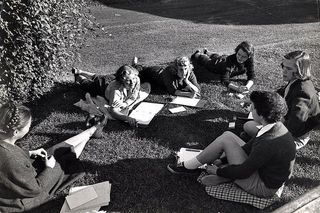
How To Boost Executive Functioning Skills for Teens
Games, sports, and studying go hand in hand.

In earlier articles, we’ve written about what executive functioning skills are and why they’re important, and suggested activities suitable for boosting these skills among different age groups. In this last part, we’ll explore activities that exercise executive functioning for teens.
As we all know, adolescence is characterized by changes in children’s social, emotional and psychological behavior. At this age, all teenagers really want is the chance to be treated like adults — to have opportunities to make their own decisions and choices, to feel that their opinions are valued, and to enjoy the freedom to decide what rules apply and how.
“Therefore, it is important for parents and mentors to understand these central desires and leverage them wisely,” says developmental pediatrician, Dr Mausam Shahpurwala.
While working memory and focus continue to improve during the teen years, the core executive functions teens need help to develop are self-awareness and inhibition (self-control), in order to counterbalance their brain’s emotional system, which is in high gear at this age and can prompt acting out and rebellious behavior.
Other executive functions that parents and mentors can support are planning and problem solving. As much as teens desire independence, their planning and strategy skills are still works in progress, and improving their abilities here will contribute to fewer struggles with parents. Self-motivation is another important executive function for teens, so they can transition to managing their own schoolwork and responsibilities without an external consequence or reward.
Executive functioning activities for teens
While executive functioning activities for teens remain similar to those for younger age groups, their level of difficulty should be higher, says Dr Shahpurwala and Harvard University’s Center on the Developing Child.
Sports and games
Playing sports and other games that require strategy enables teens to practice focusing, monitoring their own and others’ actions, making quick decisions and responding flexibly — all of “these skills enhance self-regulation,” says Dr Shahpurwala.
Yoga and meditation can also help teens develop sustained attention and promote less-reactive and more thought-out decision-making. As an added bonus, these activities can reduce their stress — which is a known inhibitor of executive functioning.
For this age group, classic strategy games like chess, which exercises computational (‘if x, then y’) thinking, working memory, planning and attention. And computer games that require moving through complicated imaginary worlds also challenge working memory and strategy skills.
Related on The Swaddle:
What’s It Like To Live With: A Child With Dyslexia
Music
Playing a musical instrument requires one to exercise executive functions like working memory, attention, cognitive flexibility and inhibition, since the child must remember how to play the instrument, the proper technique, when to play and when to stop. Playing music that is complicated to execute, that involves multiple parts or improvisation, is especially good for building executive function skills.
Theater
Similarly to making music, acting in plays and musicals requires teens to remember lines and actions for a role, pay attention to other actors, constrain their actions and speech, and modulate their voice and gestures to fit a part — all of which exercise working memory as well as self-regulatory skills.
Studying
Studying can become overwhelming for teens, but it’s also an opportunity to build their executive functioning skills, because good study skills necessitate organization, time management, planning, self-control and self-monitoring. Some study activities that help build executive functioning for teens — and have the added bonus of supporting their schoolwork — include:
- Breaking down a project into manageable pieces and identifying reasonable plans (with timelines) for completing each piece. Guide them in ensuring that all steps have been explicitly identified. When they complete a step as planned, recognize it and celebrate with them. For instance, if a teenager has a project to complete, guide them in dividing it into different processes — for instance, researching it, writing it, and assembling audiovisual aids — each with their own realistic deadlines.
- Keeping a calendar of these project deadlines and steps.
- Focusing attention at critical times. Teens can identify ways to reduce distractions — for instance when to keep phones away and find a quiet room in order to complete tasks.
- Self-monitoring, which is as important as planning, says Dr Shahpurwala. As per the Harvard paper, when faced with a problem — say, they don’t understand a concept — teens can ask themselves: What might be the problem? Are there words they don’t know? Do they know what the directions are? Is there someone they can ask for help? Would looking back at their notes help? If they have stopped paying attention, what distracted them? What might they do to refocus? Help teens learn to ask these questions of themselves, and help them dentify key times to self-monitor (e.g., before handing in an assignment, before leaving the house, etc.).
- Self-reflecting. After a project or assignment is complete, says Dr Shahpurwala, teens should “reflect on what did and did not work well.” They can ask themselves, “what you learned from a particular project, why was it or not a success, what areas do you need to work on and what you need to do differently next time.”
While executive functioning skills continue to increase well beyond the teen years, the activities and exercises above will set teens on a path to building the cognitive skills that help them apply their knowledge and transition into adulthood.
Anubhuti Matta is an associate editor with The Swaddle. When not at work, she's busy pursuing kathak, reading books on and by women in the Middle East or making dresses out of Indian prints.
Related


Everything You Need To Know About Skin Cancer
